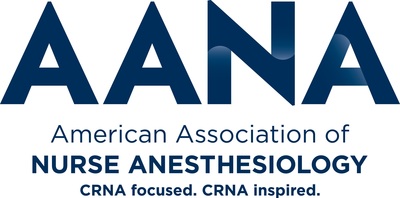Subject: NPT
The Joint Commission Urges CMS to Extend Regulatory Flexibilities for CRNAs Beyond the COVID-19 Public Health Emergency, Says AANA
PARK RIDGE, Ill., July 13, 2020 /PRNewswire/ -- In a letter to the Centers for Medicare & Medicaid Services (CMS), The Joint Commission called on the agency to extend several waivers it enacted in response to the COVID-19 pandemic, including the removal of physician supervision for Certified Registered Nurse Anesthetists (CRNAs).
According to the letter, "These waivers will allow CRNAs to function to the fullest extent of their licensure."
As advanced practice nurses, CRNAs have vast experience in critical care settings and advanced education and training in anesthesiology. CRNAs provide care across all settings and in all patient populations and are the primary providers of anesthesia care in rural and underserved areas and on the battlefield in forward surgical teams.
"Now more than ever it is important to optimize the nation's healthcare workforce. The AANA thanks The Joint Commission for recognizing the importance of allowing nurse anesthetists to practice to the full scope of their license and training," said AANA President Kate Jansky, MHS, CRNA, APRN, USA, LTC (ret). "By removing practice barriers, CMS expands access to care for millions of patients."
In addition to CMS, several states have removed physician supervision for CRNAs. Governors of New York, Pennsylvania, Michigan, Maine, Louisiana, and West Virginia removed physician supervision for CRNAs, and Alabama, Kentucky, Maryland, Massachusetts, New Jersey, Wisconsin, and Tennessee have temporarily removed aspects of restrictive physician involvement to help increase access to care for patients. Connecticut and Kansas governors also took measures to suspend restrictive physician involvement in CRNA practice, and the governor of Oklahoma signed a bill into law that enables CRNAs to administer anesthesia in collaboration with, rather than under the supervision of, a physician.
Additional executive orders expand use of telehealth and eliminate restrictions for professionals to practice in states where they are not currently licensed to increase the healthcare workforce during the pandemic.
"Many of the limits on CRNA practice are not based on any data or research, and laws in several states have long allowed CRNAs to safely practice beyond these limits. This allows states to better utilize all available healthcare providers without risking patient safety," said Jansky. "We agree with The Joint Commission that freeing providers from unnecessary statutory and regulatory burdens will allow CRNAs to contribute more efficiently to the healthcare system today and in the future."
SOURCE American Association of Nurse Anesthetists
These press releases may also interest you
|
News published on and distributed by:




